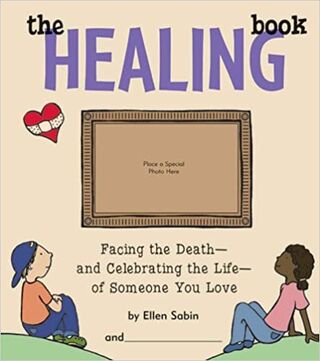How Do We Grieve Now?
Loss is hard enough in normal times. During Covid, it’s even more difficult.
by Pamela B. Paresky Ph.D.Early in the pandemic, those who lost friends or family were forced to grieve entirely alone. Zoom funerals became the norm. Now, although restrictions on gatherings have eased a bit, mourning is still not the same. Our efforts to protect one another from the virus have created a need for new rituals and new methods of support. But they aren’t yet in place, making grappling with loss even more challenging than before Covid.
Ellen Sabin learned this recently when she answered a call from a number she didn’t recognize. Her caller, Nancy, who went to great lengths to track down Sabin’s phone number, called her because Nancy’s insurance company sends Sabin’s book about grieving to their clients who lose a family member. The book had not arrived.
Nancy lost two sons and her daughter’s husband to Covid. Her grandson was “lost,” she told Sabin. “I’m lost. My daughter is lost. I need help. We need help.”
Sabin is the author of 13 books for children. In addition to coping with loss, her books offer wisdom on topics that include things like understanding peers with autism, inspiring habits of giving and charity, and developing smart cyber habits. The books provide exercises and opportunities for children to write, illustrate, and even add photographs to their personalized books. The Healing Book: Facing the Death and Celebrating the Life of Someone You Love, like the others, is both a way to facilitate conversation among family members and a collaboration between Sabin and each child, turning the book into the unique expression of each recipient.
Essential workers like Nancy are, as we all know, at increased risk of becoming infected by the virus. They also tend to live in households with more family members than people who have jobs that allow them to work from home. The extended families of essential workers who live in multigenerational households are at additional risk.
Nancy has continued to be in touch with Sabin. “She wanted a connection to another human soul,” Sabin wrote in an article on Medium. “She wanted someone to bear witness to her grief.”
Sabin is no stranger to public health crises. She holds Master’s degrees in Public Health from Harvard and in Public Administration from NYU, and she studied Medical Anthropology at the London School of Economics. Before turning to writing, Ellen spent her career working with and managing non-profit public health organizations, serving a wide range of social and community causes. Her expertise in the field of public health has taken her around the world — from New York to Africa, Myanmar, and the Amazon. Sabin has worked on efforts to provide healthcare to the homeless, reduce infant mortality in developing countries, help refugees, and create infrastructures for community-based health care (among other things).
For Sabin, Nancy’s story was unsurprising, and yet still heartbreaking. Sabin has also grappled with unexpected loss. Writing The Healing Book was an outgrowth of her own mourning process in 2011 when her father, a physician beloved by all who knew him (including me) was killed by a car that struck his bicycle. He was 74.
“Grieving is such an individual process,” she told me. “There’s no right way to do it.” When Sabin lost her father, she “found comfort in the support of a large community of family and friends, some of whom were also experiencing the same loss.” They “relied on each other, on traditions of faith and family,” and Sabin had access to psychotherapists who specialize in grief and loss.
But during Covid, mourners can’t gather to comfort one another as in pre-Covid times. And essential workers may not have the resources to find professional help. “Places like schools that would typically offer social workers or even just a peer network,” says Sabin, “or clinics or churches that may have provided some solace to the adults before the pandemic are not available now in the ways in which they used to be.”
Nancy and her daughter have been using The Healing Book to facilitate conversations with her grandson about losing his father. “Communication is important in every aspect of life,” Nancy told me, “no matter what the situation is. It keeps us strong and holds us together.” Her grandson has two copies of the book; one at his mother’s house and one at Nancy’s.

Nancy “saw The Healing Book as a life-raft,” says Sabin, “because she needed one, and no others were in sight.” But as Nancy told me, the book has been helpful to all of them, especially her grandson. “He’ll fill it out,” she said, “he’ll read it, and he’ll write down what he feels in his heart.”
Ellen Sabin is an award-winning author and the Founder of Watering Can Press, a publishing company that creates character-building books for children. You can find her books at wateringcanpress.com and on Amazon.com.
Pamela Paresky served as primary researcher and in-house editor for the New York Times bestseller, The Coddling of the American Mind. She is a Visiting Senior Research Associate at the Stevanovich Institute on the Formation of Knowledge at the University of Chicago and teaches the course, "Habits of a Free Mind: Psychology for Democracy." Her opinions are her own and should not be considered official positions of the Foundation for Individual Rights in Education or any other organization with which she is affiliated. Follow her on Twitter @PamelaParesky.